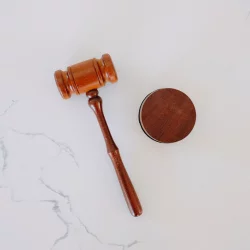4 Things You Need to Know About Patents

Patent applications can be extremely valuable or a waste of time. It all depends on the suitability of your invention for patenting, and whether you put together the patent application correctly. If you are considering filing a patent for your invention, here are some key facts you need to know.
- The Need for a Patent (Or Not)
A patent means the product is exclusively owned by the inventor. This means that there is a legal barrier against other people offering competing, similar products in the marketplace. Patents also help to discourage litigation since the original inventor has the benefit of a patent to prove his or her claim to the original idea. Patents can also generate licensing revenue for the inventor and help them progress with profitable partnerships.
Patents are not the best idea in all cases, however. When deciding on whether to put together a patent application it is important to consider the expense, including patent lawyer costs, the time taken, and the possibility that the product may not be as innovative or profitable when the patent is granted if it is developed in a fast-paced industry.
- The Need for Professional Advice
The above considerations are never straightforward and it is important to consult a professional patent attorney in order to find out whether it is going to be profitable to push a patent application forward. There is a need for transparent, confidential advice and realistic decisions can then be taken.
- Filing a Provisional Patent Application
It is possible to file a provisional patent application for an invention. This is to make sure that a priority date is set for an invention, but the patent application is not examined. These provisional patent applications are normally documents like white papers, product manuals, or software specifications. They can be converted to full patent applications.
- Jurisdiction of Patents
You file for a patent in one jurisdiction, or several, and the patent is enforceable in these jurisdictions. If you want to have patent protection around the world then you need to file in each individual country. Of course, this may not be ideal for a company since the process is expensive. However, there are opportunities for entering into additional markets with strategic patent applications which can also be discussed further with a patent attorney. Certain jurisdictions are certainly more useful than others when it comes to worldwide protection of an invention.
If you are considering patenting your invention, the first step should be to seek expert legal advice regarding the patent application process for the area in which you wish to protect your invention. An initial consultation should clearly indicate if your invention warrants the time and effort required to get a patent granted.
Image courtesy of Stuart Miles/ FreeDigitalPhotos.net
More to Read:
Previous Posts:



